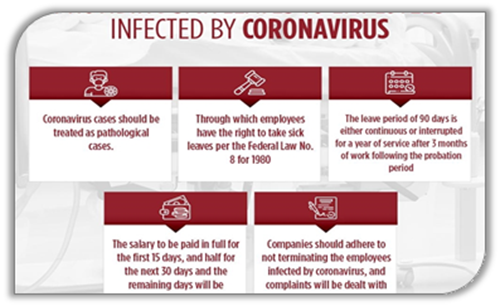
Menu

Menu

Despite the global economic slowdown, one industry that has garnered increased attention is the healthcare industry. Interestingly, developing countries and even developed nations are facing a shortage of skilled healthcare professionals. Consequently, the challenge of sourcing and retaining well-trained professionals has become a significant concern for HR leaders within the healthcare sector today.
During periods of crisis, such as the ongoing pandemic, HR leaders across industries are beginning to recognize the critical importance of maintaining a ‘human connection’. Therefore, the strategies that HR departments adopt should be rooted in empathy, focusing on providing clear communication about essential information such as the list of hospitals, safety measures, hygiene protocols, and isolation guidelines. Moreover, this moment has prompted a complete reinvention of HR practices in real-time. The changes we are witnessing include several pivotal shifts.

Many organizations have struggled to maintain their salary increment budgets during this pandemic. However, it is vital for HR leaders to prioritize regular communication about the health benefits their company offers, particularly during a crisis like this. In fact, several organizations have implemented a variety of safety measures, such as frequent sanitization, regular temperature checks, routine fumigation, and strict contamination control within the office environment. In addition to these essential initiatives, some companies have gone further by providing dietary supplements, including fruits and Vitamin C, to help boost employee immunity. Thus, by maintaining a focus on employee well-being, HR teams can foster trust and reassurance during these uncertain times.

Regular health checks are necessary to ensure employees’ physical well-being. However, it is equally important to address mental health concerns, which have become increasingly prevalent due to the pandemic. Many healthcare workers have faced heightened levels of stress, anxiety, and even domestic violence. As a result, it is essential to provide mental health support alongside physical safety measures. Moreover, consistent communication from leadership plays a key role in boosting healthcare workers’ morale and helping them feel valued. This ongoing support not only enhances their professional commitment but also helps to alleviate microaggressions and tensions that may arise within the workplace.

In light of the current challenges, it has become crucial to reevaluate leave policies in accordance with guidelines from the Ministry of Human Resources and Emiratisation (MOHRE). Several noteworthy policies have been introduced, all designed to protect and support healthcare workers. For instance:
These new policies reflect the growing emphasis on compassion and support for healthcare workers. Therefore, it is vital for HR teams to communicate the organization’s commitment to employee welfare and resilience, especially during this time of crisis. On one hand, healthcare organizations have learned to operate with minimal staff, ensuring they still deliver high-quality care to society. On the other hand, the risks associated with these shortages have increased dramatically, requiring further adjustments.
Undeniably, one of the most significant challenges healthcare HR leaders face today is balancing the risks posed by the pandemic with the ongoing shortage of healthcare professionals. With a reduced workforce, healthcare organizations must find innovative ways to continue delivering high-quality care while mitigating risks. Therefore, HR leaders are encouraged to implement the aforementioned policies and processes, ensuring that healthcare workers are protected and supported throughout this turbulent time.
Moreover, the healthcare industry has had to adjust to operating with fewer staff members while still delivering the best possible care to patients. On one hand, this has demonstrated the industry’s resilience and resourcefulness. On the other hand, it underscores the need for robust HR systems that can efficiently manage these challenges while safeguarding employee well-being.
In response to the growing complexity of HR challenges, many organizations are turning to comprehensive HR management solutions. With all the essential HR functions—such as employee visas, travel, salary processing, employee insurance, document expiry alerts, and WPS file generation—consolidated into one platform, HR teams can streamline operations and reduce administrative burdens. By leveraging technology, healthcare organizations can optimize their HR processes, improve efficiency, and ensure they are prepared to face future challenges.
As healthcare continues to evolve, so too must HR practices. By embracing innovation, demonstrating empathy, and fostering open communication, HR leaders can help their organizations navigate the uncertain road ahead while ensuring their employees feel valued, protected, and empowered.
In today’s rapidly evolving healthcare environment, open communication has never been more essential. Healthcare employees, who are on the frontlines of the pandemic, require constant updates and reassurances from their organizations. Consequently, HR teams must prioritize transparent and timely communication. This means sharing not only updates on safety protocols but also acknowledging the emotional and psychological strain many workers are facing.
By fostering an open dialogue, employees feel more connected to the organization, and this connection plays a critical role in enhancing engagement. Furthermore, it allows for the early identification of issues, ensuring that problems are addressed before they escalate. Ultimately, regular and meaningful communication improves employee morale, loyalty, and overall performance.
As healthcare organizations face fluctuating workforce demands, HR teams are tasked with managing these changes efficiently. In particular, managing staffing schedules, time-off requests, and remote work setups have become increasingly complex during the pandemic. As a result, HR must adopt more flexible workforce management strategies to address the evolving needs of both the organization and its employees.
This shift also requires HR teams to implement more agile practices that can quickly respond to external pressures. Whether it’s adjusting leave policies to accommodate quarantine measures or finding ways to improve work-life balance for employees, adaptability is key. Moreover, technology plays an integral role in streamlining these processes, ensuring that HR departments can maintain efficient workforce operations even in uncertain times.
One of the greatest advantages of modern HR solutions is the introduction of self-service platforms. These systems allow employees to take control of their HR needs, such as submitting time-off requests, updating personal information, or accessing company policies. By empowering employees to handle these tasks independently, HR teams can significantly reduce their administrative workload while also improving the employee experience.
Self-service platforms foster a sense of autonomy among employees, which directly contributes to higher satisfaction levels. Additionally, these platforms offer real-time access to important information, which can be particularly helpful in industries like healthcare, where time-sensitive decisions are often required. As more organizations implement these systems, the efficiency and overall experience of both employees and HR departments are dramatically improved.
In the healthcare industry, continuous learning is crucial to keeping staff up-to-date with the latest medical advancements and regulations. Therefore, HR teams must prioritize professional development initiatives to ensure that employees are constantly enhancing their skills. This not only helps maintain high-quality patient care but also keeps employees engaged and motivated.
Moreover, HR departments can use HRMS platforms to track employee training progress and certification renewals, ensuring compliance with industry standards. Offering ongoing learning opportunities creates a culture of growth and development, which improves employee retention and job satisfaction. As a result, the organization benefits from a skilled, knowledgeable workforce that is better equipped to handle industry challenges.
As the healthcare industry continues to evolve, employee well-being has become a top priority for HR departments. Beyond the physical health of workers, mental and emotional well-being must also be addressed, especially during a crisis like the COVID-19 pandemic. Therefore, implementing comprehensive wellness programs is essential for maintaining a resilient workforce.
In addition to offering physical safety measures like regular health screenings and sanitization protocols, HR teams should consider integrating mental health support into their wellness initiatives. Providing access to counseling services, stress management workshops, and mindfulness programs can significantly enhance the overall well-being of employees. Furthermore, HR can facilitate peer support groups where employees share their experiences and challenges, creating a sense of community and solidarity.
Alignment
Article
Audit
Automation
Benefits
Candidate
Communication
Compliance
Digitalisation
Digital Technology
Diversity
Emirates Id Application
Employee Experience
ESS
Feedback
Health and Safety
HRMS
HR Strategy
HR System UAE
Human Resource Management
Human Resource Management Systems
Job Roles
Learning and Development
Onboarding
Outsource
Payroll
Payroll Management System
Payroll Processing
Performance
Performance Management
Personalisation
Recruit
Recruiting
Recruitment
Remote Working
Rewards
Security
Service Providers
Skills
Smart
Survey
Virtual
Visa Cancellation
Work Environment
Workforce
© 2026 Pruvity HR Solutions Pvt Ltd, Madurai, India